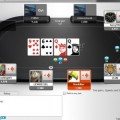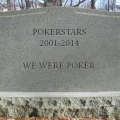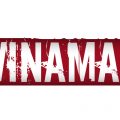
New Online Gaming Merchant Codes Could Strengthen iPoker

Thanks to the introduction of three new online gambling merchant codes, Internet poker and casino revenues could increase across states with legalized iGaming. (Image: cardplayer.com)
Gaming merchant codes have long hindered the regulated Internet poker market, but that trend might soon change thanks to the issuing of three new processing codes.
Since Nevada legalized online casinos back in 2013, financial institutions have been hesitant to approve transactions from a merchant using the identifier 7995, the Merchant Category Code (MCC) previously used for gambling on both regulated and unregulated sites.
While Visa, MasterCard, and other debit and credit cards facilitate your transaction request, the bank issuing the card must approve or decline the transfer.
More than 50 percent of MasterCard and over 33 percent of Visa transactions are declined when 7995 is associated with the request, as banks are leary of whether their customers are playing at legalized online gaming sites.
Breaking the Code
As of last week, three additional codes have been implemented by MasterCard, Visa, American Express, and Discover in order to calm fears on the part of financial backers.
The three new codes are:
7800: state-run lottery ticket sales
7801: wagers for state-run online casino games, including poker
7802: bets placed on state-run dog and horse races
The 7995 MCC will now represent only unregulated online gaming transactions, meaning the majority of US-based financial corporations will likely deny them.
The new codes should bring a peace of mind and a trustworthier framework for banks to approve such transactions.
Long Overdue
The MCC changes should have taken place in May of 2013 when Nevada legalized online gambling.
Instead, the 7995 code, which has long been associated with the industry pre-Black Friday, has persisted and has represented the market when it was overflowing with offshore and illegal networks catering to Americans.
The unwillingness to approve poker deposits has impeded the industry from flourishing as Bank of America and Wells Fargo, two of the largest banks in America, continue to block all 7995 transactions for their customers.
Though banks certainly must protect consumers from fraudulent enterprises and cannot participate in transactions it deems unlawful, residents of legal age in New Jersey, Delaware, and Nevada have every right to wager online and play iPoker.
If you’ve never read your bank’s fine print, you might be surprised to learn that the institution has zero legal obligation to process a transaction you request.
Of course, you have zero obligation to stick with such a bank should you find your legal online poker transactions being routinely denied.
Banks Not Interested?
Although many believe the 7801 code has the potential to greatly increase both online gaming and poker revenues for individual states, Matthew Katz, CEO of Central Account Management System (CAMS), expects a “slight increase,” but he says, “I don’t think it’s going to be a silver bullet.”
“The banks are not set up to operate on a state-by-state basis, and the potential liability it creates for them is much greater than the revenue,” Katz explains. “It’s not a priority.”
However, on the heels of the first interstate compact between Nevada and Delaware to share their poker player pools, and New Jersey reporting March online gaming revenues increasing nearly 18 percent in 2015, the industry is headed in the right direction.
Should the upswing continue, banks would be foolish not to recognize the value and potential benefit of embracing online poker.















0 Comments